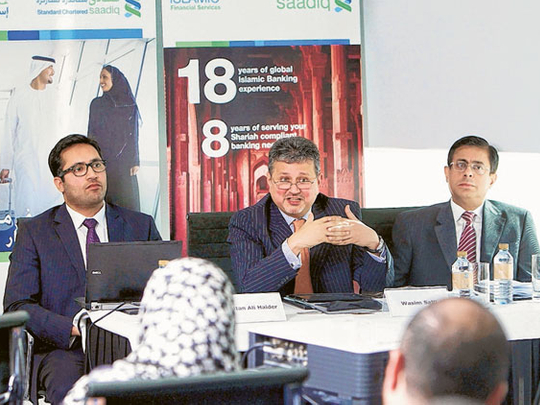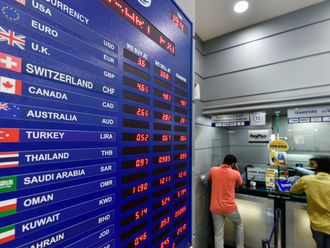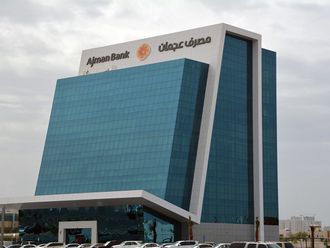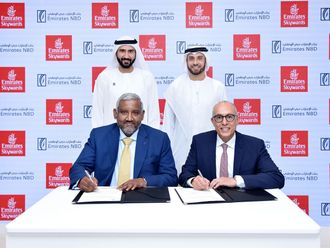
Dubai: Standard Chartered Saadiq, the Islamic banking arm of Standard Chartered Bank, yesterday said it is looking at opportunities to expand into newly-opened Islamic banking markets such as Oman and Nigeria and is closely evaluating the opportunities in the Middle East and North Africa (Mena) region.
"We are looking at opportunities in Oman and Nigeria, the two newly-opened markets for Islamic finance. The bank is likely to take a decision on entry into these markets sometime next year," said Wasim Saifi, Global Head, Islamic Banking (Consumer Banking) of Standard Chartered Saadiq.
While Middle East markets, particularly those in the Gulf, have huge growth potential, Saifi said, the recent political changes in the Mena region have opened up a big market for Islamic finance.
"In many of the established markets for Islamic finance, such as the Gulf, Malaysia, Bangladesh, Pakistan and Indonesia, more than 80 per cent of Muslims still bank with conventional banking. The growing awareness of Islamic banking combined with innovative product offerings can increase the market share of Islamic banking in these markets," said Sultan Ali Haider, General Manager, Islamic Banking (Consumer Banking).
In most markets, with the exception of Qatar, both Islamic banks and Islamic windows of conventional banks offer Islamic banking products and services. Currently Islamic windows and subsidiaries of conventional banks account for more than 30 per cent of Islamic banking assets. With the opening up of new markets in Mena and Africa, Standard Chartered expects significant growth in the asset size of both Islamic banks and the Islamic banking operations of conventional banks.
According to Ernst and Young's inaugural World Islamic Banking Competitiveness Report 2011, published last month, Islamic banking's market share of all banking assets in the Gulf crossed the 25 per cent threshold in 2011. Islamic banking assets with commercial banks globally are expected to reach $1.1 trillion (Dh4.03 trillion) next year, a 33 per cent jump from $826 billion in 2010.
Islamic banking assets in Mena increased to $416 billion in 2010, a five-year compounded annual growth rate of 20 per cent. The E&Y report expects Mena Islamic banking assets with commercial banks to more than double to $990 billion by 2015 as Islamic banks compete for mainstream customers who are open to Islamic or conventional banking.
Standard Chartered estimates Islamic banking assets in the UAE at 18 per cent of banking assets and expects it to exceed 20 per cent by next year.
Standard Chartered Saadiq yesterday launched an enhanced Islamic banking offering designed specifically for individuals and small and medium enterprises (SMEs), providing them with Sharia-compliant banking products and services. It builds on the bank's experience of offering world class Islamic banking over the last eight years across the UAE, Bahrain, Malaysia, Indonesia, Bangladesh and Pakistan.
Saadiq customers in the UAE can now access the full range of banking products and services through Standard Chartered's 600-strong frontline staff and sales representatives, who have been trained in Islamic banking.
"Over the last few years, our customers have showed an increasing preference for Sharia-compliant products and services, necessitating a need for us to strengthen our Islamic banking capabilities. Today, Standard Chartered provides its customers with convenient, effective, and rewarding Sharia compliant banking," said Vishu Ramachandran, Regional Head of Consumer Banking for Middle East, Pakistan and Africa.
Managing Wealth
Standard Chartered Saadiq, the Islamic banking arm of Standard Chartered, plans to focus on expanding its offerings in Islamic wealth management, senior executives of the bank said yesterday.
"Every possible Islamic variant of retail products are now available in most markets we operate in. Wealth management and private banking are two areas where we think there are product gaps that need to be addressed," said Wasim Saifi, global head of Islamic banking, at a press conference.
The bank officials said the affluent Muslim clients are looking for Sharia compliant products and services in wealth management and private banking.












